Poor Tourism is a complex phenomenon, raising questions about ethics, exploitation, and authentic cultural exchange. SIXT.VN offers travelers opportunities to explore Vietnam responsibly, prioritizing respect for local communities and contributing to sustainable tourism practices. With SIXT.VN, discover Vietnam’s rich heritage through enriching experiences.
1. What is Poor Tourism and Why is it Controversial?
Poor tourism, also known as “slum tourism” or “poverty tourism,” involves visiting impoverished areas to witness the living conditions of the poor. This practice is controversial due to ethical concerns surrounding exploitation, voyeurism, and the potential for further marginalizing vulnerable communities. While proponents argue it can raise awareness and generate income, critics suggest it often objectifies poverty for entertainment, lacking genuine engagement or benefit for the residents.
Poor tourism, in essence, is the act of visiting impoverished areas as a form of travel. It’s not a new phenomenon, but it has gained traction in recent years. The controversy stems from the inherent ethical dilemmas. Is it right to turn someone’s hardship into a spectacle? Does it truly benefit the community, or does it simply perpetuate a cycle of exploitation?
The criticisms are multi-faceted:
- Voyeurism: Critics argue that poor tourism is often motivated by a desire to gawk at the less fortunate, turning poverty into a spectacle for entertainment.
- Exploitation: The money generated from these tours often doesn’t reach the communities themselves, instead lining the pockets of tour operators.
- Lack of Dignity: Residents of these areas may feel like they are being put on display, losing their dignity and privacy.
- Reinforcing Stereotypes: These tours often reinforce negative stereotypes about poverty and the people who live in these conditions.
However, some argue that poor tourism can have positive impacts:
- Raising Awareness: It can expose tourists to the realities of poverty, raising awareness and potentially inspiring them to take action.
- Generating Income: When done responsibly, it can provide income and employment opportunities for local residents.
- Challenging Perceptions: It can challenge preconceived notions about poverty and the people who live in these conditions, promoting empathy and understanding.
According to a 2018 study by King’s College London, poverty was ignored, denied, overlooked and romanticized, but moreover, it was depoliticized.
Ultimately, the ethics of poor tourism depend on how it’s conducted. Responsible tours prioritize the well-being and dignity of the community, ensuring that residents benefit directly from the tourism.
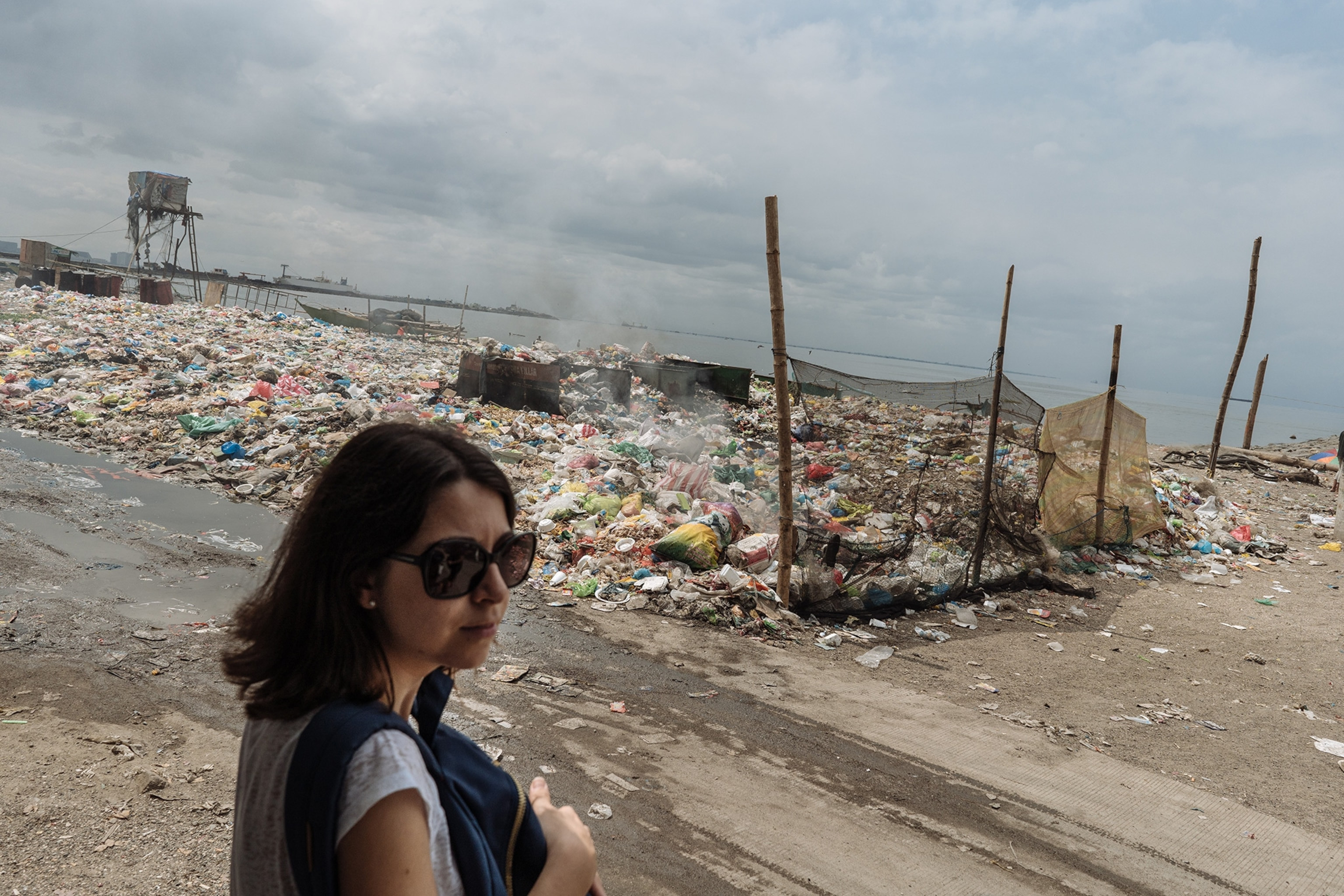 Slum tourism can challenge preconceived notions about poverty.
Slum tourism can challenge preconceived notions about poverty.
2. Who Participates in Poor Tourism and What Motivates Them?
Participants in poor tourism come from diverse backgrounds, but are generally affluent individuals seeking unique and “authentic” travel experiences. Motivations vary, ranging from genuine curiosity and a desire to understand global inequality to a sense of adventure or even a morbid fascination. Some may be driven by a desire to “give back” or feel like they are making a difference, while others may simply be seeking a novel and Instagrammable experience.
The motivations behind participating in poor tourism are complex and often intertwined. Some common drivers include:
- Curiosity and a desire to learn: Many tourists are genuinely curious about the lives of people living in poverty and want to learn more about the challenges they face.
- A quest for “authentic” experiences: In a world of mass tourism, some travelers seek out experiences that feel more real and less sanitized.
- A desire to “give back” or make a difference: Some tourists believe that by visiting impoverished areas, they can contribute to the local economy and support community development.
- A sense of adventure or novelty: For some, the allure of visiting a place that is different from their own lives can be a strong draw.
- Morbid fascination: While less common, some tourists may be motivated by a morbid curiosity or a desire to witness poverty firsthand.
It’s important to note that these motivations are not always mutually exclusive. A tourist might be driven by a combination of curiosity, a desire to learn, and a sense of adventure.
According to Dr. Fabian Frenzel, who studies tourism of urban poverty at the University of Leicester, points out that one of the key disadvantages of poverty is a lack of recognition and voice. “If you want to tell a story, you need an audience, and tourism provides that audience.”
SIXT.VN recognizes the diverse motivations of travelers and aims to provide experiences that are both enriching and responsible. By partnering with local communities and ensuring that tourism benefits residents directly, SIXT.VN strives to create a positive impact while offering travelers a deeper understanding of Vietnam.
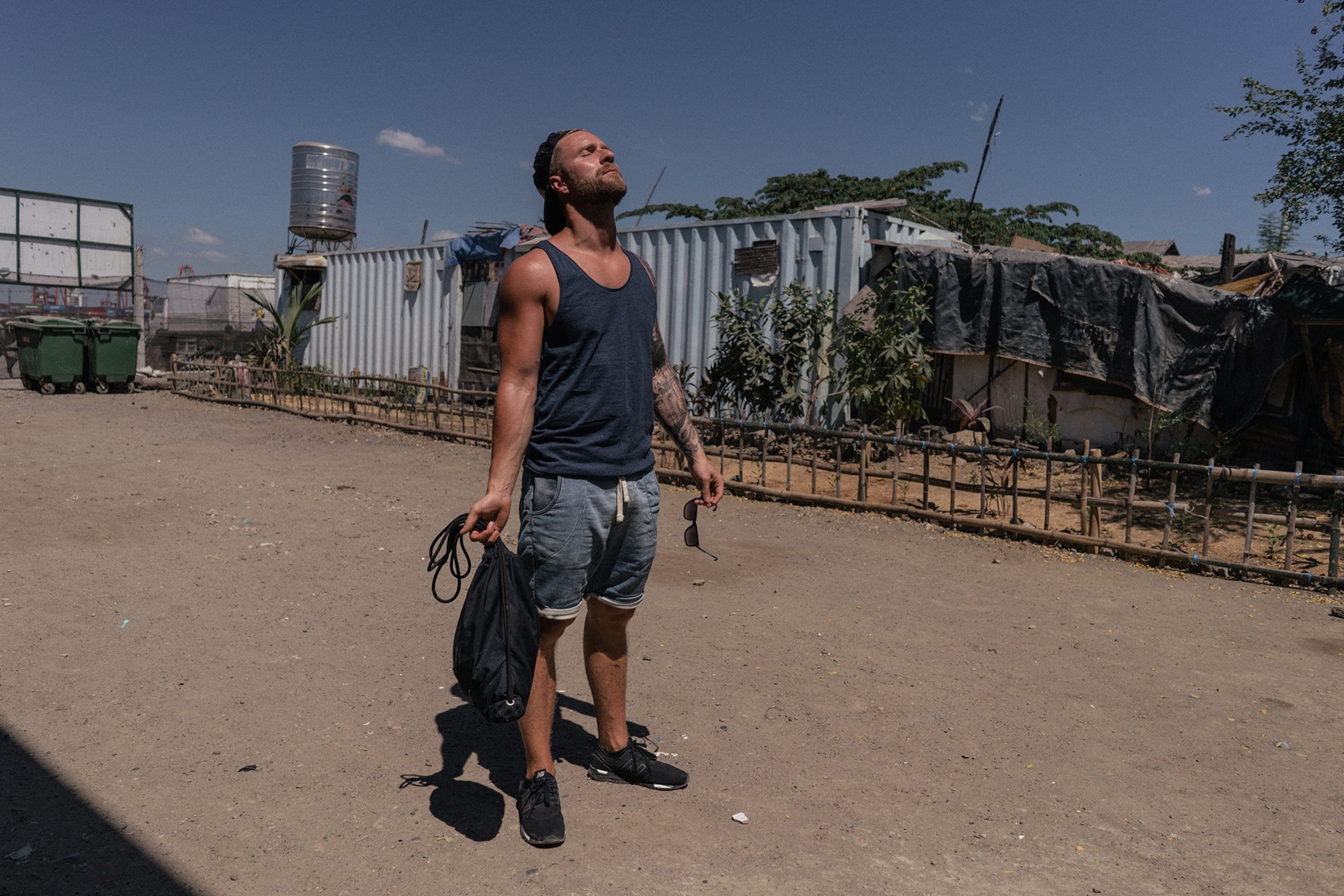 Slum tourism participants can be driven by a desire to learn.
Slum tourism participants can be driven by a desire to learn.
3. Where Does Poor Tourism Typically Occur?
Poor tourism occurs in various locations around the world, primarily in developing countries with high levels of poverty and inequality. Some popular destinations include slums in India (e.g., Dharavi in Mumbai), favelas in Brazil (e.g., Rio de Janeiro), townships in South Africa, and impoverished neighborhoods in Southeast Asian cities like Manila. These areas often attract tourists due to their visible poverty, unique cultural practices, or historical significance.
Here are some common locations for poor tourism:
- Slums in India: Dharavi in Mumbai is perhaps the most well-known example, attracting tourists who want to see the industries and community life within the slum.
- Favelas in Brazil: Rio de Janeiro’s favelas offer a glimpse into a different side of the city, with tours often focusing on the vibrant culture and art of the communities.
- Townships in South Africa: These historically segregated areas offer a look into the legacy of apartheid and the struggles and resilience of the people who live there.
- Impoverished neighborhoods in Southeast Asia: Cities like Manila, Philippines, and Phnom Penh, Cambodia, have areas where tourists can see the challenges faced by urban communities.
SIXT.VN focuses on providing sustainable and ethical travel experiences throughout Vietnam, including in areas with economic disparities. By partnering with local communities, SIXT.VN ensures that tourism benefits residents directly, promoting economic empowerment and cultural preservation.
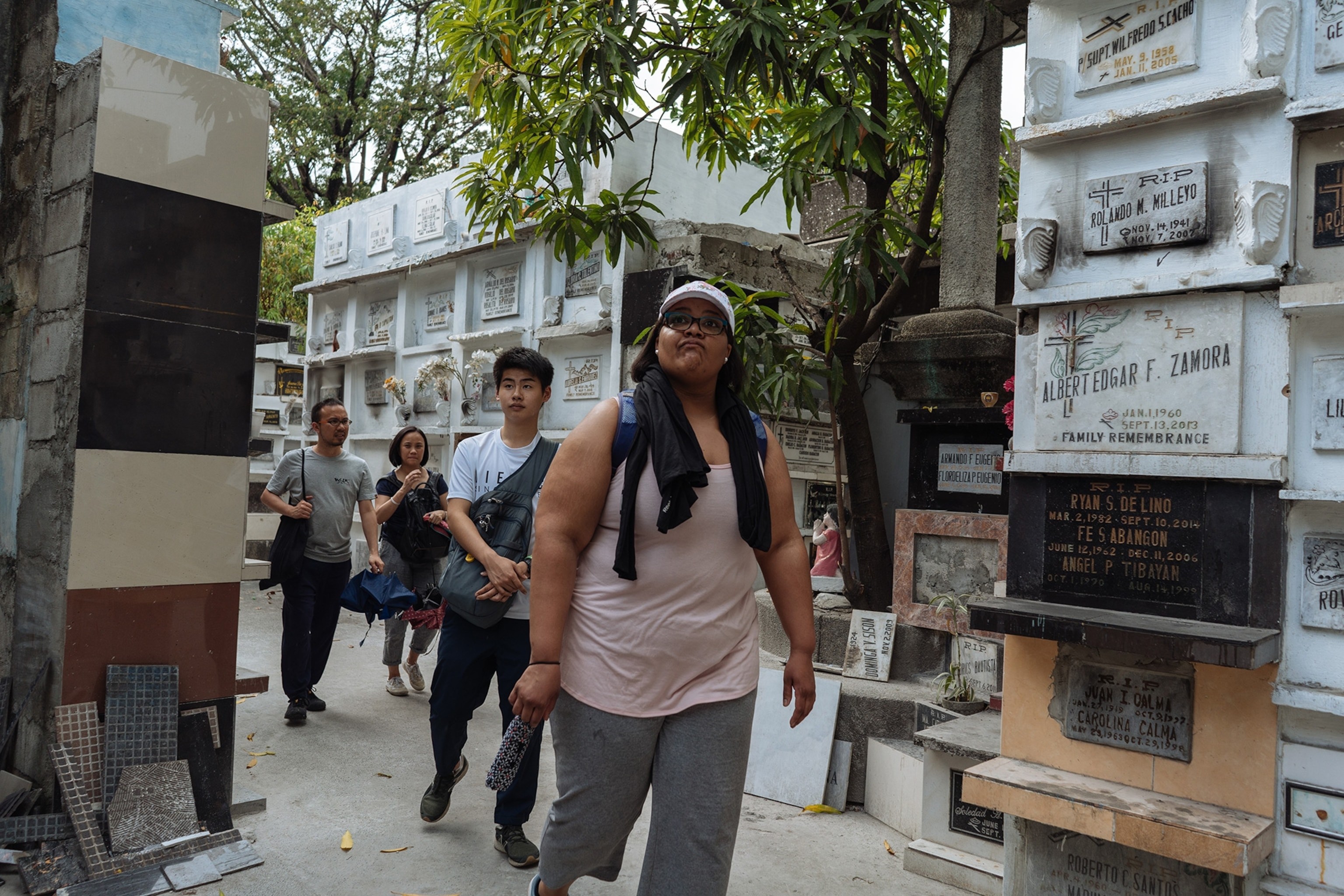 Slum tourism in the Manila North Cemetery
Slum tourism in the Manila North Cemetery
4. How Can Poor Tourism Be Conducted Ethically?
Conducting poor tourism ethically requires careful consideration and a commitment to responsible practices. This includes:
- Respecting the dignity and privacy of residents: Avoiding intrusive photography, asking for consent before interacting with people, and refraining from gawking or treating residents like exhibits.
- Ensuring that tourism benefits the community: Choosing tour operators that directly support local businesses, employ local guides, and contribute to community development projects.
- Educating tourists about the realities of poverty: Providing context and information about the historical, social, and economic factors that contribute to poverty, rather than simply focusing on the visual spectacle.
- Promoting cultural exchange and understanding: Encouraging meaningful interactions between tourists and residents, fostering empathy and breaking down stereotypes.
- Being transparent about the purpose of the tour: Clearly communicating the tour’s objectives and ensuring that tourists understand the potential ethical implications.
Here are some key principles for ethical poor tourism:
- Community Involvement: Local residents should be actively involved in the planning and execution of tours, ensuring that their voices are heard and their needs are met.
- Transparency and Accountability: Tour operators should be transparent about where the money goes and how it benefits the community.
- Respect for Privacy: Tourists should respect the privacy of residents and avoid intrusive photography or behavior.
- Education and Awareness: Tours should provide educational information about the causes and consequences of poverty, as well as the local culture and history.
- Sustainable Practices: Tours should be designed to minimize their environmental impact and promote sustainable development.
SIXT.VN is committed to ethical tourism practices in Vietnam. We prioritize partnerships with local communities, ensuring that our tours benefit residents directly and promote sustainable development.
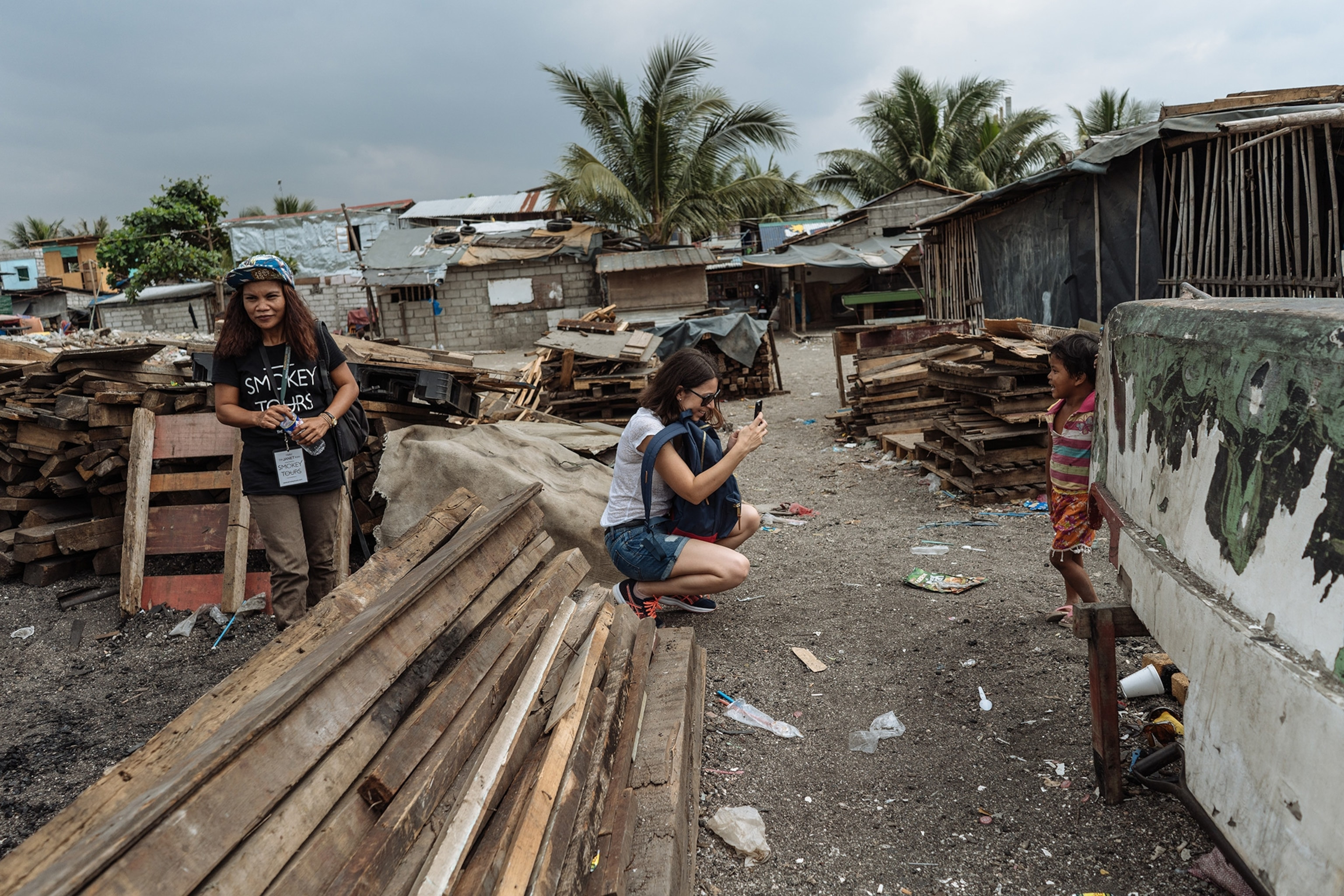 Ethical slum tours can generate income for communities.
Ethical slum tours can generate income for communities.
5. What Are the Potential Benefits of Poor Tourism?
When conducted ethically, poor tourism can offer potential benefits to both tourists and local communities. These include:
- Raising awareness about poverty and inequality: Exposing tourists to the realities of poverty can increase their understanding and empathy, potentially inspiring them to take action or support relevant causes.
- Generating income and employment opportunities: Responsible tours can create jobs for local residents as guides, craft vendors, or service providers, boosting the local economy.
- Supporting community development projects: Some tour operators donate a portion of their profits to community development initiatives, such as schools, healthcare facilities, or infrastructure improvements.
- Promoting cultural exchange and understanding: Meaningful interactions between tourists and residents can foster cross-cultural understanding and break down stereotypes.
- Empowering local communities: When residents are actively involved in planning and managing tours, it can empower them to take control of their own narratives and destinies.
Here are some of the potential benefits of poor tourism:
- Economic Empowerment: Tours can provide income and employment opportunities for local residents, boosting the local economy and reducing poverty.
- Community Development: Some tour operators donate a portion of their profits to community development projects, such as schools, healthcare facilities, or infrastructure improvements.
- Cultural Preservation: Tours can help to preserve local culture and traditions by showcasing them to tourists and providing opportunities for cultural exchange.
- Increased Awareness: Tours can raise awareness among tourists about the realities of poverty and inequality, inspiring them to take action or support relevant causes.
- Empowerment of Local Communities: When residents are actively involved in planning and managing tours, it can empower them to take control of their own narratives and destinies.
SIXT.VN aims to maximize the benefits of tourism for local communities in Vietnam. By partnering with local businesses and organizations, SIXT.VN ensures that our tours contribute to sustainable development and empower residents to improve their lives.
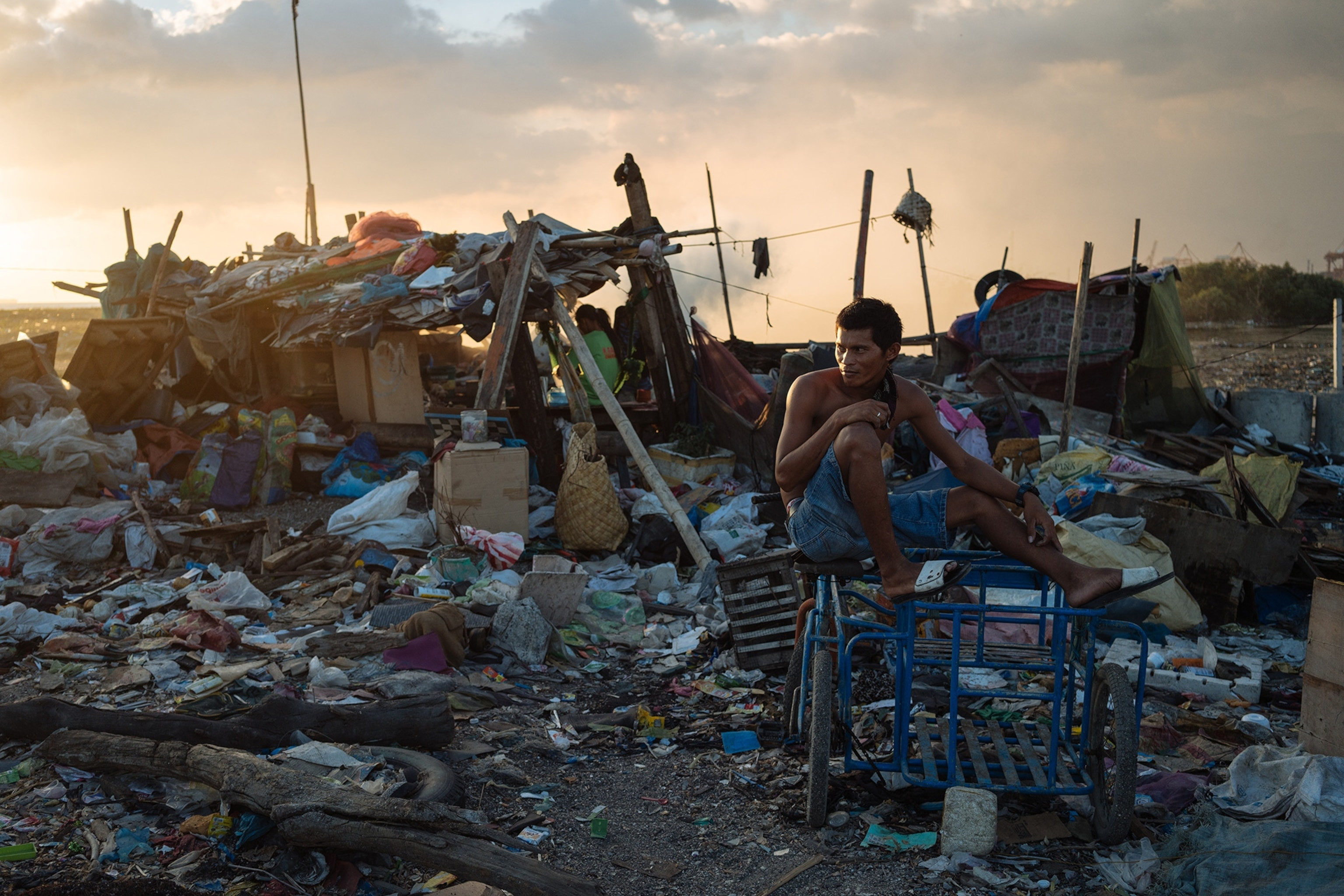 Ethical slum tourism prioritizes the well-being and dignity of the community.
Ethical slum tourism prioritizes the well-being and dignity of the community.
6. What Are the Potential Drawbacks of Poor Tourism?
Despite the potential benefits, poor tourism also carries significant drawbacks, including:
- Exploitation and objectification of poverty: Tourists may treat residents like exhibits, taking intrusive photos or gawking at their living conditions without genuine empathy or respect.
- Lack of privacy and dignity for residents: Tours can disrupt the daily lives of residents and make them feel like they are being put on display.
- Unequal distribution of benefits: The money generated from tours may not reach the communities themselves, instead benefiting tour operators or outside investors.
- Reinforcing negative stereotypes: Tours may perpetuate negative stereotypes about poverty and the people who live in impoverished areas.
- Commodification of suffering: Turning poverty into a tourist attraction can be seen as a form of commodification, reducing human suffering to a spectacle for entertainment.
Here are some of the potential drawbacks of poor tourism:
- Exploitation and Objectification: Tourists may treat residents like exhibits, taking intrusive photos or gawking at their living conditions without genuine empathy or respect.
- Lack of Privacy: Tours can disrupt the daily lives of residents and make them feel like they are being put on display.
- Unequal Distribution of Benefits: The money generated from tours may not reach the communities themselves, instead benefiting tour operators or outside investors.
- Reinforcing Negative Stereotypes: Tours may perpetuate negative stereotypes about poverty and the people who live in impoverished areas.
- Commodification of Suffering: Turning poverty into a tourist attraction can be seen as a form of commodification, reducing human suffering to a spectacle for entertainment.
SIXT.VN is aware of the potential drawbacks of poor tourism and takes steps to mitigate them. We prioritize ethical practices, respect the dignity of local communities, and ensure that our tours benefit residents directly.
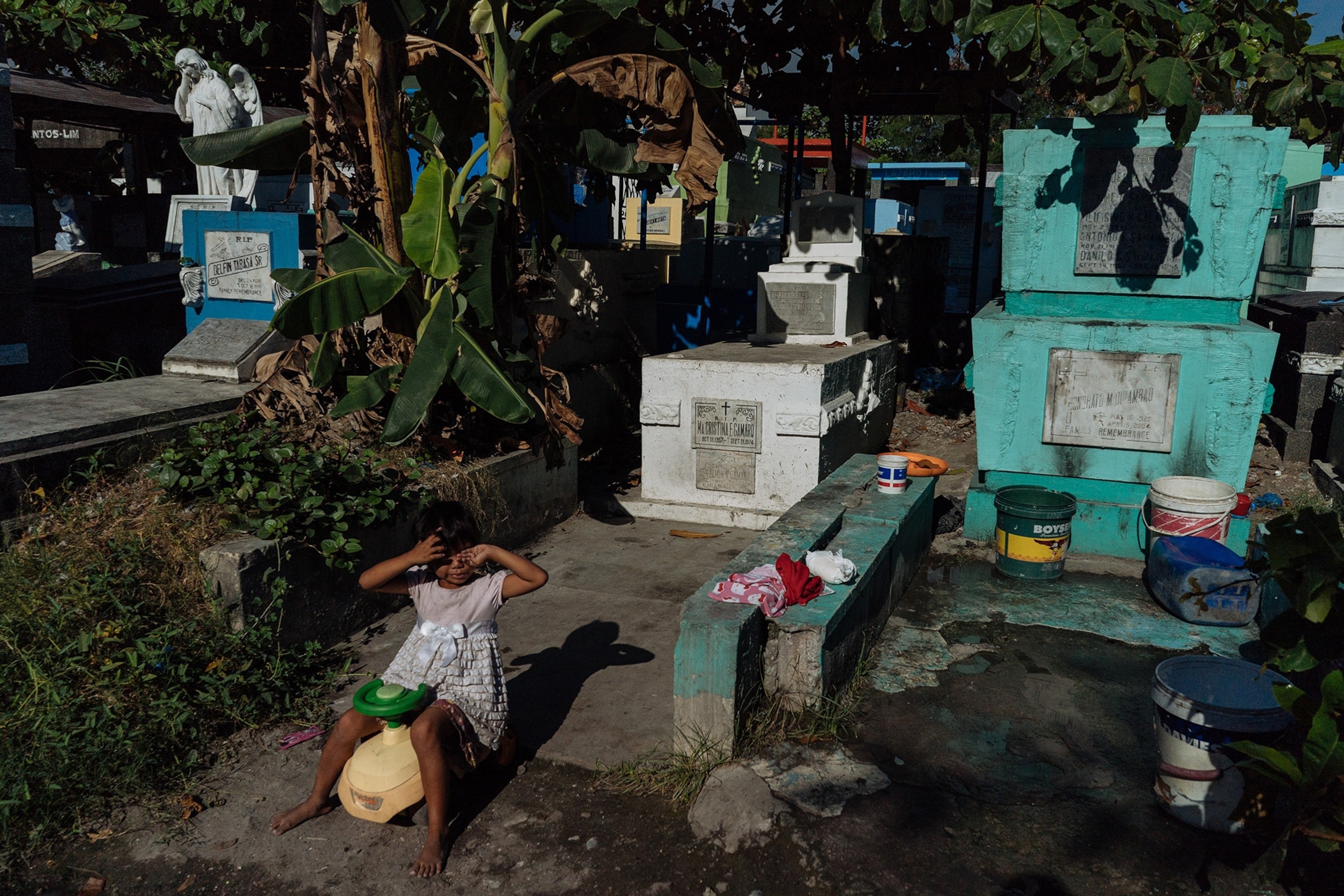 Slum tourism reinforces stereotypes about poverty.
Slum tourism reinforces stereotypes about poverty.
7. What Are Some Examples of Responsible Poor Tourism Initiatives?
Several organizations and tour operators are working to promote responsible poor tourism practices. Some examples include:
- Reality Tours and Travel (Mumbai, India): This company donates a significant portion of its profits to community development projects in Dharavi slum, providing education, healthcare, and other resources.
- Favela Tourism (Rio de Janeiro, Brazil): This organization works with local guides and businesses in favelas to offer authentic and educational tours that benefit the community.
- Smokey Tours (Manila, Philippines): This company connects tourists with residents of impoverished areas in Manila, sharing their stories and raising awareness about the challenges they face.
These initiatives share several key characteristics:
- Community involvement: Local residents are actively involved in planning and managing the tours.
- Transparency and accountability: Tour operators are transparent about where the money goes and how it benefits the community.
- Respect for privacy: Tourists are expected to respect the privacy of residents and avoid intrusive behavior.
- Education and awareness: Tours provide educational information about the causes and consequences of poverty.
- Sustainable practices: Tours are designed to minimize their environmental impact and promote sustainable development.
SIXT.VN is committed to following these best practices in our own tours and activities in Vietnam. We believe that tourism can be a force for good, and we are dedicated to creating experiences that are both enriching and responsible.
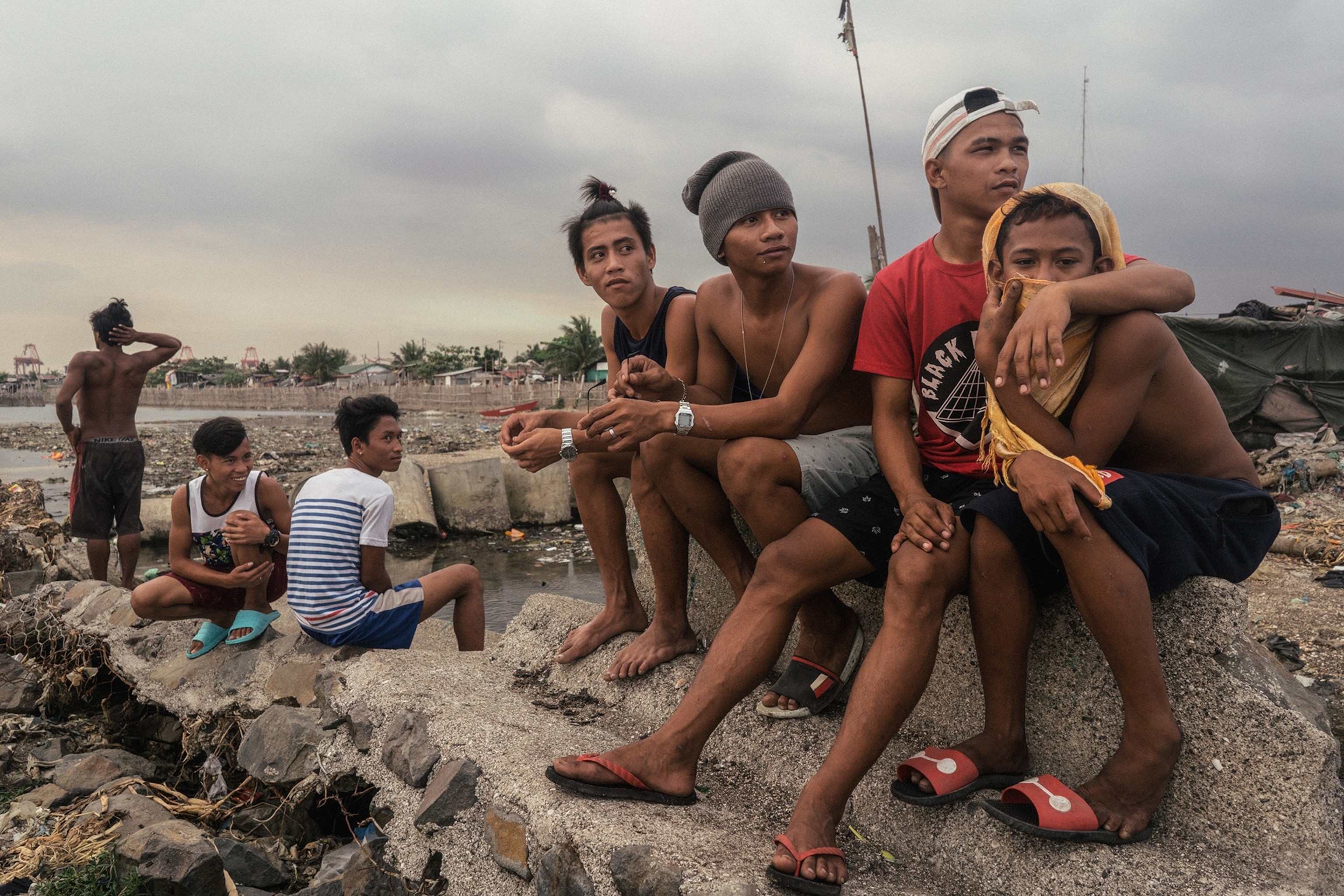 Slum tourism disregards privacy and disturbs the daily lives of its residents
Slum tourism disregards privacy and disturbs the daily lives of its residents
8. How Can Tourists Ensure They Are Participating in Ethical Poor Tourism?
Tourists can take several steps to ensure they are participating in ethical poor tourism:
- Research tour operators carefully: Look for companies that prioritize community involvement, transparency, and sustainable practices.
- Read reviews and testimonials: See what other travelers have to say about their experiences with the tour operator.
- Ask questions: Don’t be afraid to ask the tour operator about their ethical policies and practices.
- Be respectful of residents: Avoid intrusive photography, ask for consent before interacting with people, and refrain from gawking or treating residents like exhibits.
- Support local businesses: Buy crafts and souvenirs from local vendors, eat at local restaurants, and use local services.
- Educate yourself about poverty and inequality: Learn about the historical, social, and economic factors that contribute to poverty in the area you are visiting.
- Reflect on your own motivations: Consider why you are interested in participating in poor tourism and whether your motivations are ethical and respectful.
Here are some questions to ask yourself before participating in poor tourism:
- Am I motivated by a genuine desire to learn and understand, or am I simply seeking a novelty experience?
- Will my participation benefit the community in any way, or will it simply perpetuate exploitation?
- Am I willing to respect the privacy and dignity of residents, or will I treat them like exhibits?
- Am I prepared to learn about the causes and consequences of poverty, or am I simply interested in the visual spectacle?
SIXT.VN encourages travelers to be mindful of these considerations when planning their trips to Vietnam. We are committed to providing ethical and responsible tourism experiences that benefit both our guests and the local communities we visit.
 Responsible slum tourism benefits the community.
Responsible slum tourism benefits the community.
9. What Alternatives Exist to Traditional Poor Tourism?
If you are concerned about the ethical implications of traditional poor tourism, several alternatives exist that offer more responsible and sustainable ways to engage with poverty and inequality:
- Community-based tourism: This type of tourism is owned and operated by local communities, ensuring that benefits stay within the community and that residents have control over their own narratives.
- Volunteer travel: Volunteering with a local organization can provide a more meaningful and impactful way to contribute to community development.
- Educational travel: Participating in a study tour or workshop focused on poverty and inequality can provide a deeper understanding of the issues and potential solutions.
- Supporting fair trade: Buying products from fair trade organizations ensures that producers receive fair prices for their goods and that workers are treated ethically.
- Advocating for policy changes: Supporting organizations that advocate for policies that address poverty and inequality can help create systemic change.
Here are some examples of organizations that offer alternative travel experiences:
- Global Greengrants Fund: They support grassroots environmental and social justice movements around the world.
- Tourism Concern: An independent organization fighting for ethical and fairly traded tourism.
- The International Ecotourism Society (TIES): Committed to promoting responsible travel through education, research, and advocacy.
SIXT.VN is dedicated to offering a range of sustainable and ethical travel experiences in Vietnam. We believe that tourism can be a force for good, and we are committed to creating experiences that are both enriching and responsible.
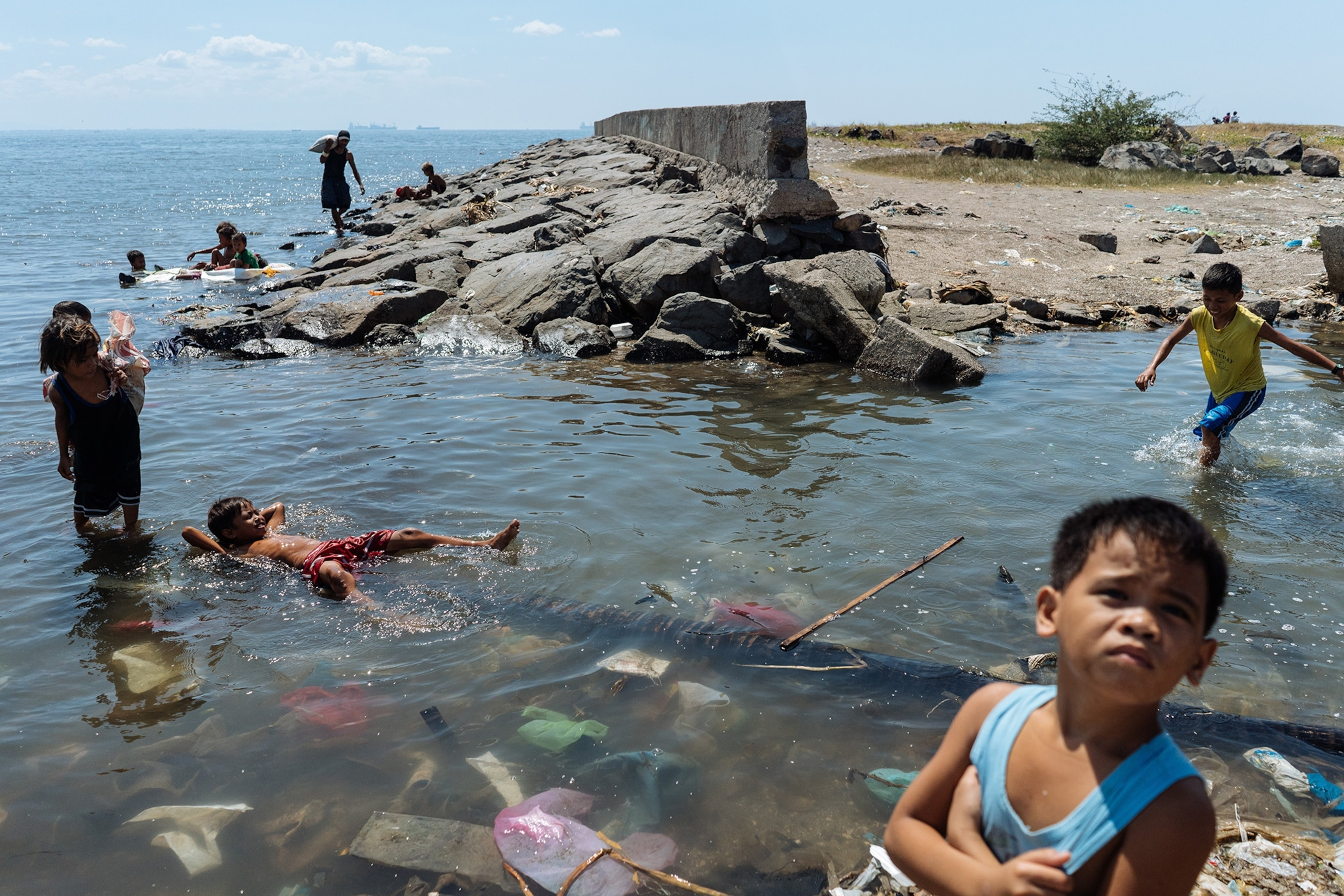 Slum tours cause intrusion in personal space.
Slum tours cause intrusion in personal space.
10. How Does SIXT.VN Approach Tourism in Vietnam to Avoid Pitfalls of Poor Tourism?
SIXT.VN is committed to responsible and sustainable tourism practices in Vietnam. We avoid the pitfalls of poor tourism by:
- Partnering with local communities: We work closely with local communities to develop tours that benefit residents directly and respect their culture and traditions.
- Employing local guides: Our guides are knowledgeable about the local area and culture, and they are passionate about sharing their stories with visitors.
- Supporting local businesses: We encourage our guests to support local businesses by buying crafts and souvenirs from local vendors, eating at local restaurants, and using local services.
- Educating our guests about Vietnamese culture and history: We provide our guests with information about the historical, social, and economic context of the areas they are visiting, promoting understanding and empathy.
- Donating a portion of our profits to community development projects: We donate a portion of our profits to organizations that are working to improve the lives of people in need in Vietnam.
SIXT.VN believes that tourism can be a force for good, and we are committed to creating experiences that are both enriching and responsible. We invite you to join us on a journey to discover the beauty and culture of Vietnam while making a positive impact on the lives of local communities.
SIXT.VN Services:
- Consultation for travel itineraries tailored to your interests and schedule.
- Safe and reliable airport transfer services.
- Hotel booking assistance with options for every budget and location preference.
- Guidance on booking tours to popular attractions in Hanoi and surrounding areas.
- Assistance with booking flights at competitive prices and convenient schedules.
- Organization of professional and engaging Hanoi sightseeing tours.
Contact Information:
- Address: 260 Cau Giay, Hanoi, Vietnam
- Hotline/Whatsapp: +84 986 244 358
- Website: SIXT.VN
Ready to explore Vietnam responsibly? Contact SIXT.VN today and let us help you plan an unforgettable and ethical journey!
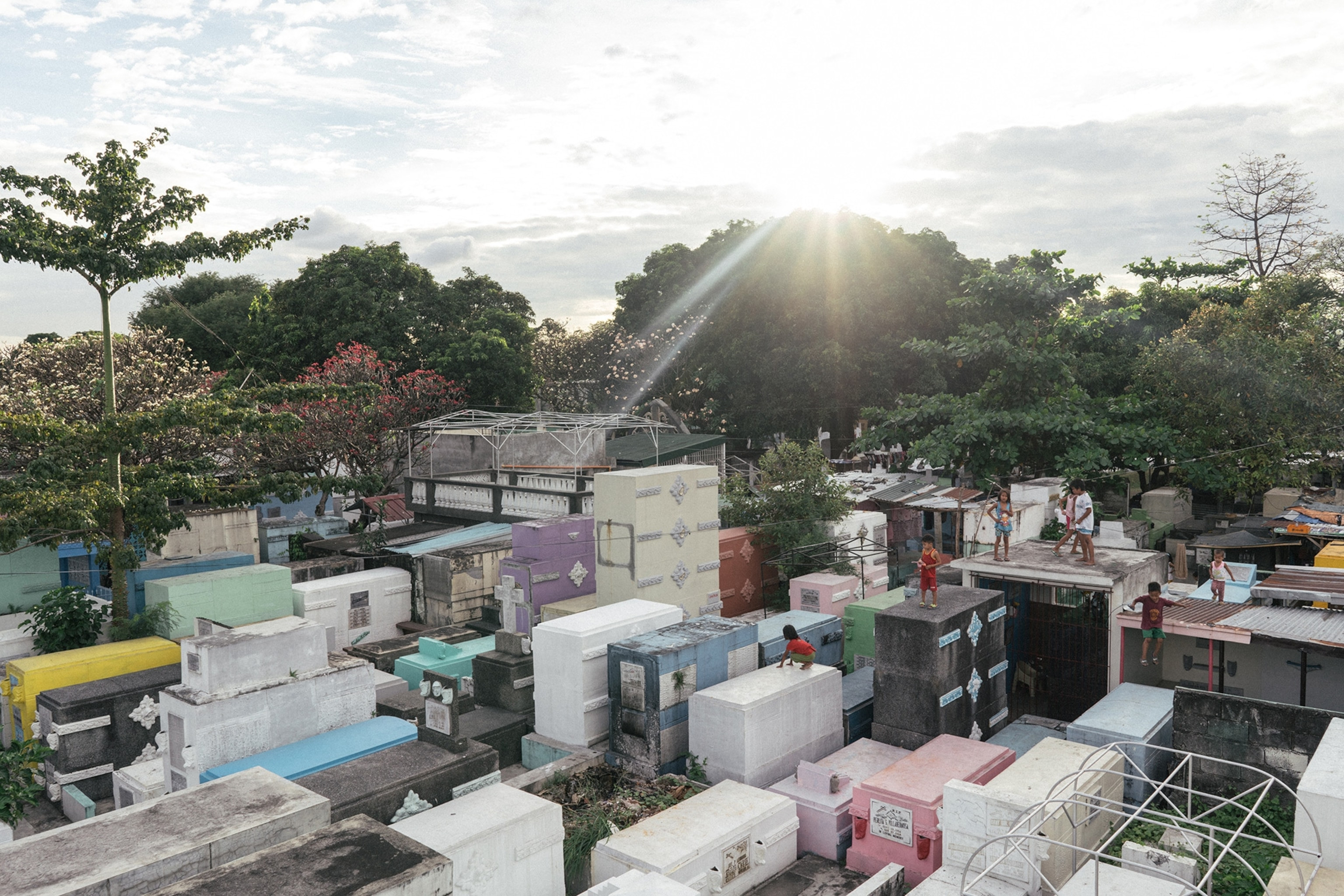 Residents jump from grave to grave in the city’s largest cemetery.
Residents jump from grave to grave in the city’s largest cemetery.
FAQ About Poor Tourism in Vietnam
Here are some frequently asked questions about poor tourism in Vietnam:
- Is it ethical to visit impoverished areas in Vietnam? The ethics depend on how the tour is conducted. Responsible tours prioritize the dignity and well-being of residents, ensuring that they benefit directly from tourism.
- What are the potential benefits of poor tourism in Vietnam? When conducted ethically, it can raise awareness about poverty, generate income for local communities, and promote cultural exchange.
- What are the potential drawbacks of poor tourism in Vietnam? It can lead to exploitation, a lack of privacy for residents, and the reinforcement of negative stereotypes.
- How can I ensure that I am participating in ethical poor tourism in Vietnam? Research tour operators carefully, read reviews, ask questions about their ethical policies, and be respectful of residents.
- What alternatives exist to traditional poor tourism in Vietnam? Consider community-based tourism, volunteer travel, or supporting fair trade organizations.
- Does SIXT.VN offer poor tourism experiences in Vietnam? SIXT.VN focuses on sustainable and responsible tourism practices that benefit local communities without exploiting or objectifying poverty.
- How does SIXT.VN ensure that its tours are ethical? We partner with local communities, employ local guides, support local businesses, and donate a portion of our profits to community development projects.
- What should I do if I see unethical behavior on a tour in Vietnam? Speak up and voice your concerns to the tour operator. If the behavior continues, consider leaving the tour and reporting the incident to relevant authorities.
- How can I learn more about poverty and inequality in Vietnam? There are many resources available online and in libraries. You can also visit local museums, attend lectures, or volunteer with a local organization.
- What can I do to support efforts to reduce poverty in Vietnam? You can donate to organizations that are working to improve the lives of people in need, advocate for policies that address poverty and inequality, or simply be a more conscious consumer.
This information aims to provide travelers with a comprehensive understanding of the complexities surrounding poor tourism in Vietnam and to encourage responsible and ethical travel practices. SIXT.VN is dedicated to promoting sustainable tourism that benefits both our guests and the local communities we visit.



